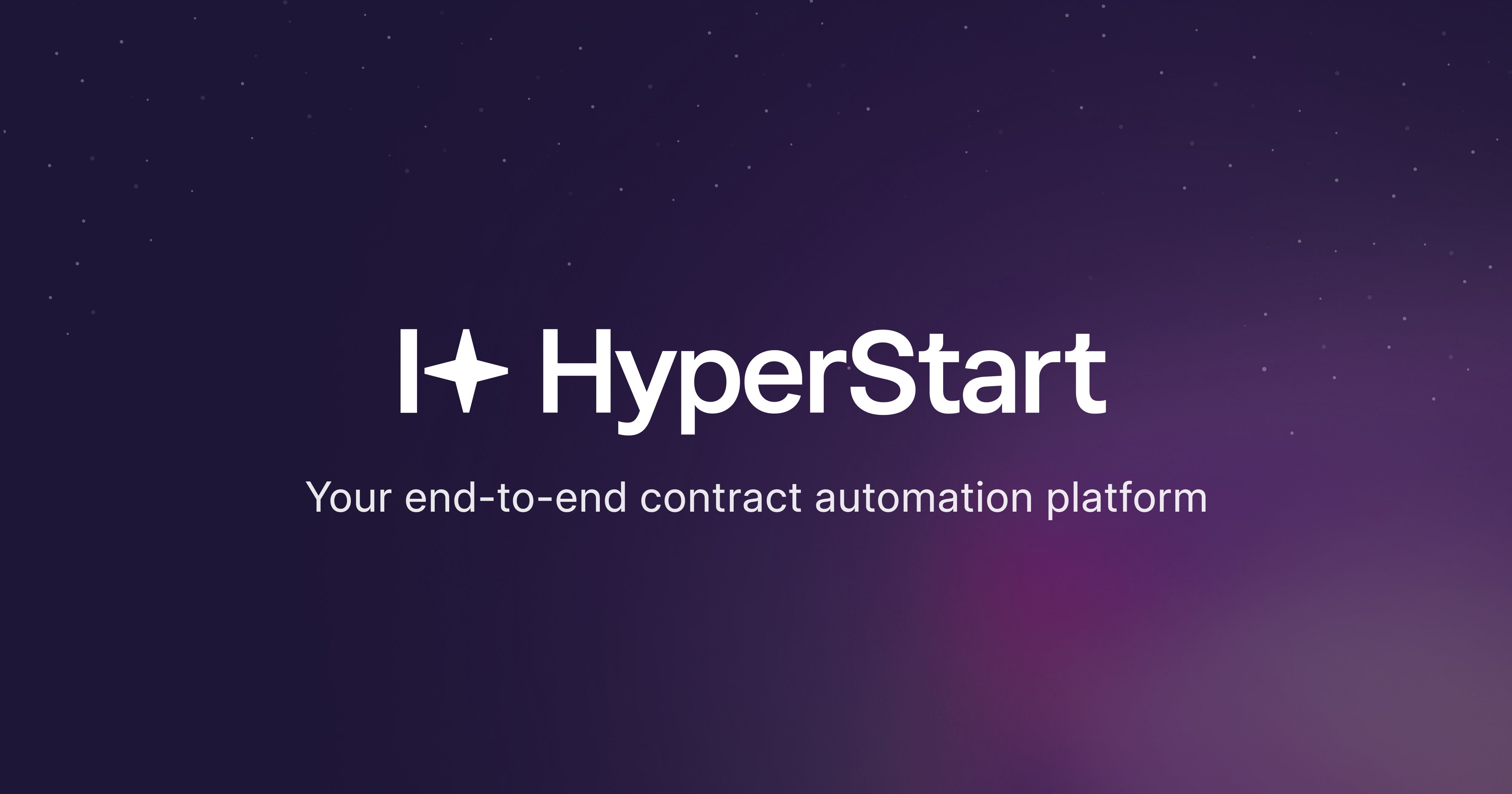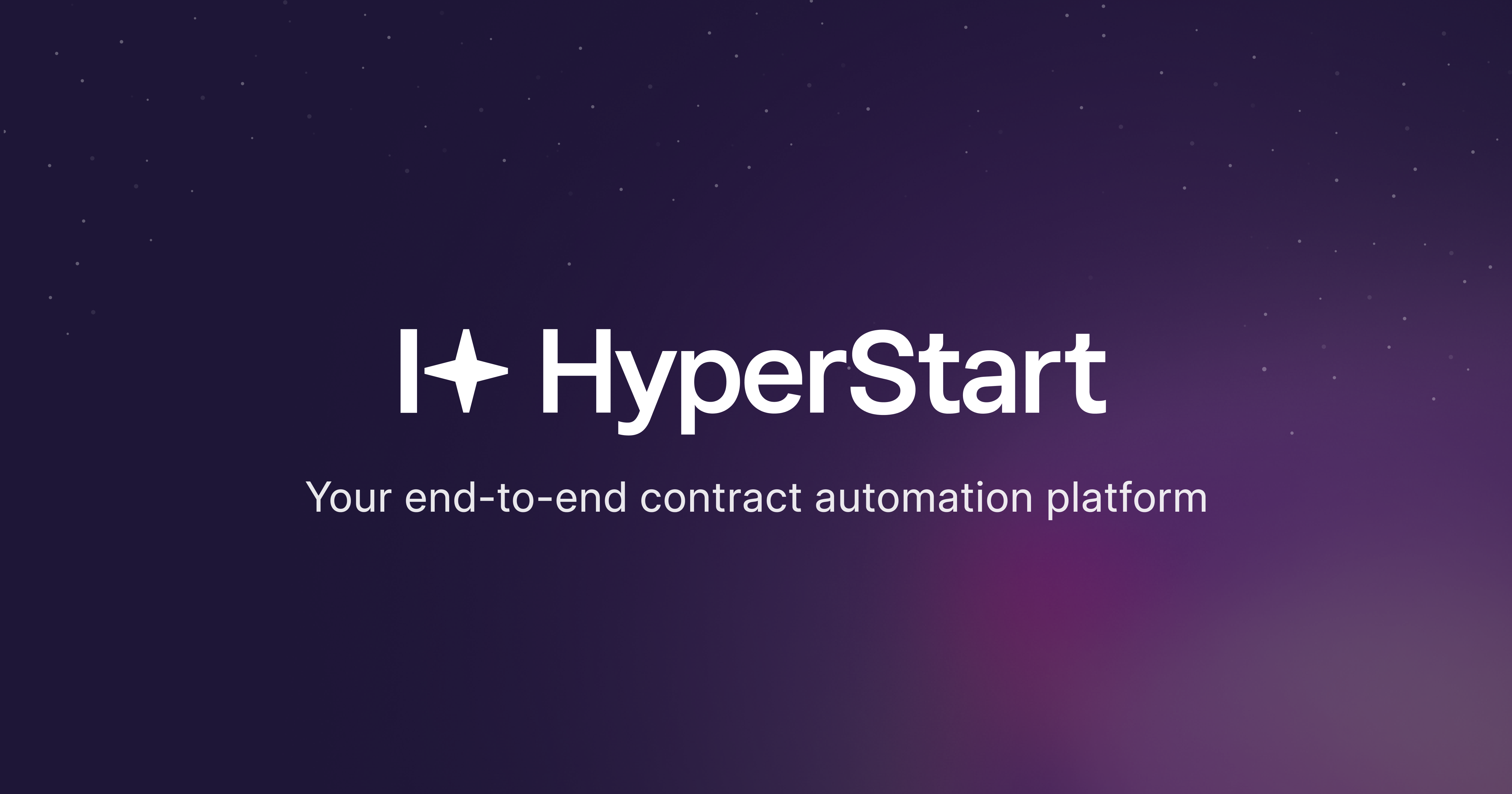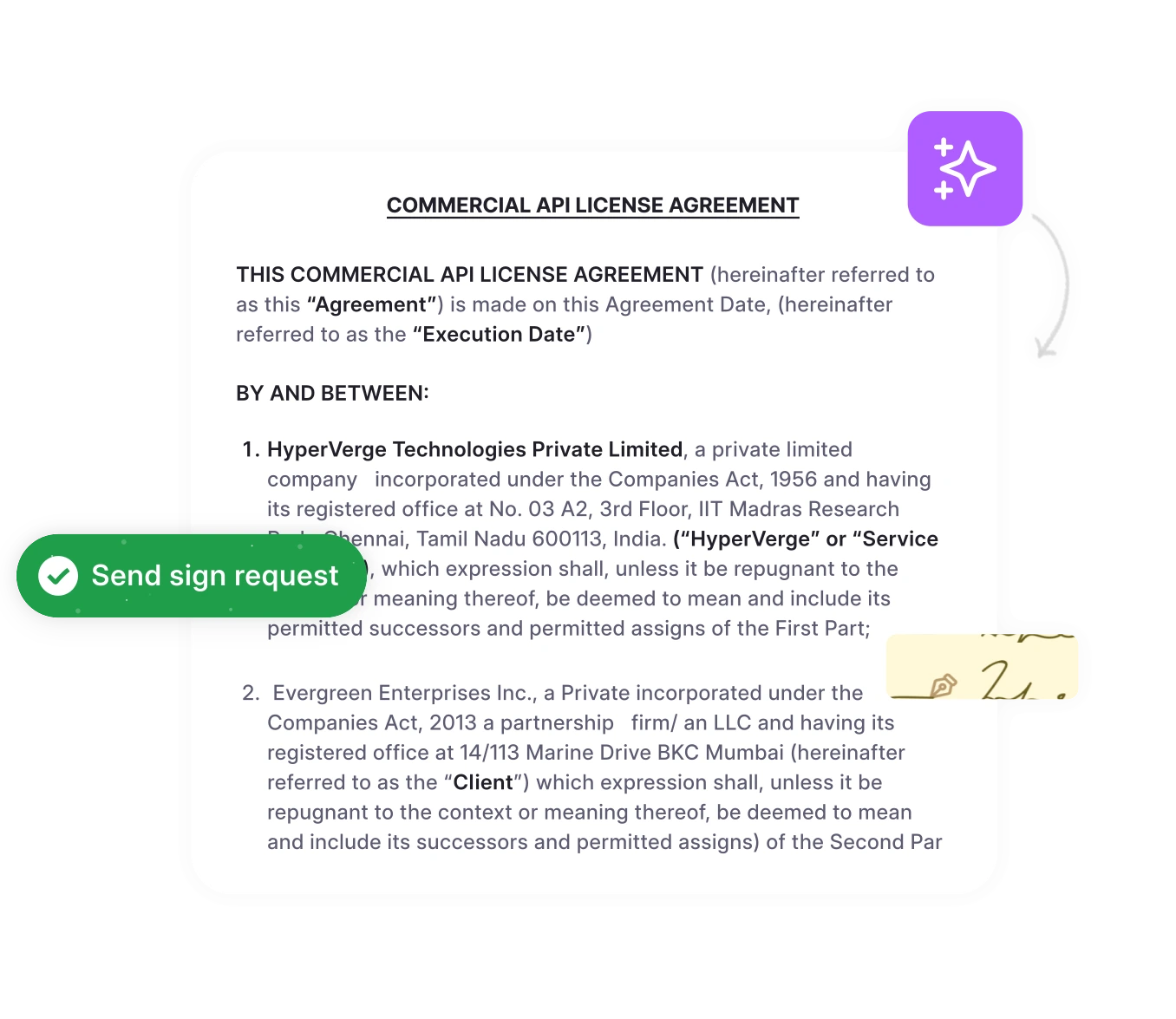Imagine: Party A and Party B have a contract. Party A wants out, and Party C wants in. Novation legally creates a contract between Party B and Party C, removing A’s liability entirely.
Let’s dive in.
What is novation of a contract?
Novation is a legal process where the parties to a contract agree to replace one of the original parties with a new party, maintaining a seamless contractual relationship among all other stakeholders.
In this new contract, a third party takes over the rights and, importantly, the obligations of one of the original parties. Unlike simply amending a few terms here and there, a novation creates a brand new contract and, by agreement of all three parties, extinguishes the obligations of the replaced party under the old contract. The new party steps in with full responsibility.
Here’s what makes novation different from just tweaking a contract:
- Complete substitution: You’re not editing the existing agreement—you’re creating an entirely new one
- Three-party consensus: Everyone involved (the exiting party, the remaining party, and the incoming party) must give their blessing
- Total release: The outgoing party is legally freed from all obligations under the original deal
The doctrine of novation
The doctrine of novation is the legal principle that allows an existing contract to be replaced with a new one, as long as all parties involved agree to the change. Instead of modifying a few terms, novation wipes the slate clean: one party is released from the original agreement, a new party steps in, and a brand-new contract takes effect.
Under this doctrine, three things must be true:
- A previous valid contract exists
- All parties consent to substituting one party for another
- The original contract is extinguished and replaced by the new agreement
This is why novation is more powerful than an assignment. Assignment transfers rights, but the original party can remain liable. Novation, grounded in this doctrine, eliminates that ongoing liability by forming a completely new legal relationship.
Businesses rely on the doctrine of novation when they want a clean, risk-free transfer of obligations, like replacing a vendor, selling a contract, or shifting a service provider without disrupting performance.
Streamline Contracts With Ease
Reduce manual work, eliminate errors, and automate agreements from drafting to signing.
Book a DemoWhen novation becomes necessary
Novation typically enters the picture when:
- Change of parties: One of the original contracting parties needs to exit completely. Maybe they’re selling their business, restructuring, or simply can’t fulfill their obligations anymore. A new party wants to take their place, and everyone agrees to the switch.
- Business restructures: The same principle applies during corporate restructuring. A company might want to transfer its entire contractual liability to a new subsidiary or holding company. Novation ensures that the entire original agreement, including all responsibilities and rights, moves cleanly from the outgoing party to the incoming party, with the consent of the remaining party.
- Mergers, acquisitions, and vendor replacement: When companies merge or get acquired, novation becomes essential. Say Company A has existing customer contracts and gets bought by Company B. Through novation, those contracts can legally be moved to the acquiring company, ensuring continuity for customers while properly releasing Company A from its obligations.
How novation works step-by-step
Let’s break down the novation process into actionable steps that legal and compliance teams actually follow:
Step 1: Identify the need to replace a party
Someone in the original contract needs out. Maybe your vendor is selling their business, or your client is restructuring. Whatever the reason, all parties recognize that continuing under the current agreement isn’t viable.
Step 2: Get consent from all parties
This is non-negotiable. Without mutual consent, the novation cannot proceed. You need explicit agreement from:
- Mutual consent: All parties involved must agree to the novation. No exceptions. One party can’t force novation on another.
- Clear identification of parties: The agreement must explicitly name the outgoing party, the continuing party, and the incoming party. Vague language creates legal nightmares.
- Reference to the original contract: You need to clearly state which contract you’re replacing. Include contract numbers, dates, and specific terms.
Step 3: Draft a novation agreement
This isn’t an amendment. You’re creating a new contract that clearly identifies all parties, references the original contract, includes release clauses (freeing the outgoing party), and spells out assumption clauses (binding the new party).
Step 4: Transfer responsibilities and rights
The new party doesn’t just inherit obligations; they also gain all the rights under the contract. Payment terms, performance requirements, intellectual property rights, warranties, indemnities, everything transfers.
Step 5: Sign and manage the new contract
Once everyone signs, the original contract becomes void. Only the new agreement has legal force. From this point forward, the exiting party has zero liability, and the new party is fully responsible.
Read also: Best Contract Compliance Management Software
What makes a novation legally valid?
For a novation agreement to hold up in court, it must include:
- Mutual consent: All parties involved must agree to the novation. No exceptions. One party can’t force novation on another.
- Clear identification of parties: The agreement must explicitly name the outgoing party, the continuing party, and the incoming party. Vague language creates legal nightmares.
- Reference to the original contract: You need to clearly state which contract you’re replacing. Include contract numbers, dates, and specific terms.
- Release and assumption clauses: The release clause frees the outgoing party from all future obligations. The assumption clause binds the new party to all contractual duties.
- Governing law: Specify which jurisdiction’s laws apply. Novation is governed by the choice of law provision in each contract that determines which state’s laws apply.
Streamline Contracts With Ease
Reduce manual work, eliminate errors, and automate agreements from drafting to signing.
Book a DemoTypes of novation
Not all novations work the same way.
1. Standard novation (transfer of all obligations)
A general novation involves only the two original parties: a debtor and a creditor sign a new agreement to be liberated from the former contract. One party exits completely, a new party enters, and all rights and obligations transfer cleanly.
2. Expromissio (new debtor takes over)
An expromissio novation involves a third party entering the picture. The new party, or debtor (called the expromissor), takes on the debt of the former debtor. When the creditor accepts this change, it discharges the first debtor from the debt.
This is common when someone wants to assume another person’s financial obligations, think mortgage assumptions or loan transfers. In such cases, parties often formalize the new arrangement through a payment agreement contract that specifies updated repayment terms and default remedies.
3. Delegation novation (transfer of duties)
In delegation novation, a new creditor takes on the contractual responsibilities and benefits of an old creditor, discharging the original debtor from their debts to the first creditor and legally binding the new party to the obligations.
Novation vs. assignment: the key differences
What assignment transfers
Contract assignment typically involves the transfer of rights or benefits under a contract from one party (the assignor) to another (the assignee). Here’s the critical distinction: in an assignment, the original party usually remains liable for the obligations under the contract unless specifically released by the other original party.
For example, if Party A is owed money by Party B, Party A might assign its right to receive that money to Party C. But if Party A also had obligations to perform work for Party B, those obligations might still rest with Party A.
Use assignment when:
- You only want to transfer payment rights or benefits
- The original party is willing to remain liable
- You need a faster, simpler process
- The contract allows assignment without consent
Why novation requires full consent
Novation transfers both rights and obligations to a new party. The original party is completely released from the contract. That’s why all parties must consent, you’re fundamentally changing who’s responsible.
An assignment often only requires notice to the other party, not their explicit approval.
Use novation when:
- You need a complete release from all obligations
- You’re transferring both rights and duties
- All parties are willing to consent
- You’re dealing with complex restructuring or M&A situations
Where novation is commonly used
Let’s look at applications across different industries where novation becomes essential.
1. Real estate transactions
Real estate novation may happen when a lease is transferred from one party to another. For example, if an original lessee signs a one-year rental agreement with the landlord for an apartment but wants to leave their lease six months in, they can transfer the lease to a new lessee.
With the landlord’s approval, the new tenant assumes full responsibility for rent payments and property maintenance. The original tenant walks away completely released from the lease obligations.
This beats a sublease arrangement where the original tenant often remains on the hook if the subtenant defaults.
2. Financial markets and loans
In banking, novation helps restructure debt arrangements. A novation helps restructure debt to prevent the debtor’s default or bankruptcy. In England, novation is a standard procedure for rescheduling loans.
When loans get sold between financial institutions, novation can transfer the entire lending relationship, including all covenants, security interests, and obligations, to the new lender while properly releasing the original lender.
3. Government contracting
Government contracts present unique novation challenges. The Anti-Assignment Act generally prohibits the transfer of government contracts from the contractor to a third party. However, the government may, when in its interest, recognize a third party as the successor in interest to a government contract when the third party’s interest in the contract arises out of the transfer of all the contractor’s assets or the entire portion of the assets involved in performing the contract.
FAR (Federal Acquisition Regulation) 42.1204 provides guidelines for novation when they are allowed as consistent with the interests of the government, allowing contracts to be transferred to a new party with government approval.
4. Technology and SaaS vendor replacements
Tech companies frequently use novation when replacing service providers. If your company has a long-term SaaS contract with Vendor A, but Vendor A gets acquired by Company B, a novation agreement ensures your service continues seamlessly while properly releasing Vendor A and binding Company B to all the original terms.
proper assignment and novation clauses should clearly state the consent conditions. There’s a risk of contracting with an unknown party that might have different values, strategies, or abilities, or who might be a competitor. That’s why flexibility for corporate change must be balanced with appropriate restrictions.
Read
Example of contract novation
1. Corporate restructuring scenario
When a large corporate entity separates into two companies, management must quickly find all contracts with assignment clauses to figure out which entity they belong to. Without proper novation agreements, contracts could end up with the wrong entity, creating operational chaos and potential breaches.
2. Confidentiality obligations transfer
When either party is allowed to assign or novate its rights and obligations under an NDA (a form of contract), the assignee must have the capability to meet relevant obligations. Any assignment of an NDA must account for the transfer of confidential materials or limit the obligations only to confidential information disclosed after the assignment’s effective date.
3. Subcontractor assignment
The distinction of subcontractors is relevant if a subcontractor wishes to assign its obligations to a third party. Whether a customer should pre-approve such an assignment depends on the subcontractor’s role and whether they are characterized as strategic to the project’s success.
4. Government contract novation
Novation is the only way to transfer certain government contracts. The Anti-Assignment Act generally prohibits transferring a U.S. government contract via a simple asset sale, but the FAR provides an exception via the novation process, allowing a contract to be transferred to a new party with government approval.
Pros and cons of novation of contracts
Like any legal mechanism, novation comes with trade-offs. Let’s weigh them.
Benefits for businesses
- Clean transfer of liability: This is the golden ticket. When the contracting parties reach a consensus and sign the novation agreement, they release each other from any liabilities that may arise from the original agreement. The new party cannot hold the original party accountable for any obligations resulting from the agreement.
- Better risk management: Novation allows companies to exit unfavorable contracts properly, transfer obligations during restructuring, and ensure continuity when ownership changes. It’s risk management done right.
- Clarity and certainty: Everyone knows exactly where they stand. The old contract is dead, the new contract rules, and there’s no ambiguity about who’s responsible for what.
Potential drawbacks
- Requires consent from all parties: This can slow everything down. If one party refuses to consent, the novation can’t proceed. You might be stuck with the original arrangement or need to find alternative solutions.
- Can slow down transitions: The novation process requires drafting new agreements, obtaining signatures from all parties, and ensuring proper legal documentation. This takes time.
- Timing and transaction structure risk: Novation usually begins after the deal closes (after assets transfer). Because of that, buyers often rely on a post-closing subcontract while waiting for novation approval. The government controls both the timing and the decision to approve or reject the novation, which can introduce significant uncertainty and risk.
Novation risk checklist for M&A teams
Use this checklist during diligence, structuring, negotiation, and post-close planning to avoid the pitfalls that trip up government-contract acquisitions.
1. Pre-deal diligence: Identify all novation-triggering contracts
✔ Identify every contract subject to respective laws
✔ Flag the biggest novation risk like MATOCs in government contracts (Multiple Award Task Order Contracts)
✔ Review upcoming or open task order competitions tied to these contracts
✔ Map which agreements can or cannot be transferred without government approval
2. Evaluate timing risks
✔ Confirm whether any important proposals, task orders, or recompetes will occur before the novation is approved
✔ Assess the contracting agency’s typical novation timeline (often months, sometimes longer)
✔ Build timeline buffers for buyer/seller integration and workforce transition planning
3. Structure the deal with novation in mind
✔ For asset purchases, confirm which assets require novation vs. which can transfer immediately
✔ For equity purchases, confirm whether novation is needed
✔ Model delays in revenue recognition tied to novation outcomes
4. Analyze “interim performance” options
While novation is pending, decide who performs and who bills whom:
✔ Seller continues as prime and buyer performs as subcontractor
✔ Buyer performs fully, but seller remains contractually liable
✔ Hybrid model (depends on agency comfort level)
Key risk: Confusion over who is performing can affect standing, eligibility, and protests.
5. Proposal and bid strategy during the novation window
✔ Decide who will submit proposals (seller vs. buyer) before novation is approved
✔ Confirm whether the seller is still considered an “interested party”
✔ Avoid ambiguity about which entity the government expects to perform
6. Confirm consent requirements and contacts
✔ Identify the contracting officer responsible for approval
✔ Confirm whether the agency has supplemental rules or unusual documentation requirements
✔ Prepare to submit a list of required attachments
7. Draft contractual protections in the M&A agreement
✔ Clear obligations for who files the novation request and when
✔ Which party bears risk if novation is delayed or denied
✔ Revenue-sharing, earnouts, or escrows tied to novation outcomes
✔ Backup plan if the government requires changes to proposed structures
8. Financial modeling adjustments
✔ Discount revenue from government contracts until novation approval is secured
✔ Consider deal-value adjustments if novation is uncertain
✔ Include worst-case scenarios (novation denied or delayed 12+ months)
9. Transition and workforce planning
✔ Ensure the workforce supporting the contract does not violate contract terms during transition
✔ Confirm security clearances, facility access, or onboarding requirements
✔ Clarify who supervises employees before novation is finalized
10. Post-close administrative plan
✔ Track ongoing communications with the contracting officer
✔ Maintain continuity of performance and reporting
✔ Document all subcontracting and financial arrangements while waiting for approval
✔ Monitor related task order deadlines and performance metrics
11. Reform awareness (for strategic planning)
✔ Expect variability across agencies
✔ Account for unpredictability in both timeline and approval likelihood
Tips for drafting or reviewing a novation agreement
Getting the documentation right prevents headaches down the road.
Checklist of essential clauses
Your novation agreement should include:
- Identification of all parties: Full legal names and addresses of the outgoing party, continuing party, and incoming party
- Reference to original contract: Specific contract number, date, and description
- Release clause: Clear language releasing the outgoing party from all future obligations
- Assumption clause: Explicit assumption of all obligations by the incoming party
- Consent statements: Documented consent from all parties
- Governing law and jurisdiction: Which laws apply and where disputes will be resolved
- Effective date: When the novation takes effect
When to involve legal counsel
Always. Novation creates new legal relationships and extinguishes old ones. The stakes are too high for DIY approaches. Legal counsel ensures:
- All necessary parties provide proper consent
- The language properly releases and binds parties
- You comply with any industry-specific regulations (like FAR for government contracts)
- The agreement will hold up if challenged
The assignment and novation clause should state:
- The effects of any transfer on the original parties and the new ones
- The consent conditions (including timing)
- The formal requirements
This proactive approach makes future novations much smoother.
Read also: Contract Management Software Features
The bottom line
The key takeaways:
- Novation replaces the entire contract, not just parts of it
- All parties must consent, no exceptions
- It transfers both rights and obligations while completely releasing the outgoing party
- It’s different from an assignment, which only transfers rights and may leave the original party liable
- Government contracts have special rules under the Anti-Assignment Act and FAR 42.1204
Novation is your legal tool for making clean breaks in contractual relationships. When you need to completely exit a contract, transfer obligations during M&A, or restructure business relationships, novation provides the mechanism to do it properly.












